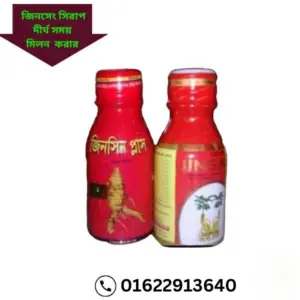Description
sensation meaning in bengali Certainly! The Bengali translation of “sensation” depends on the context you have in mind. Here’s a breakdown of the most relevant options
sensation meaning in bengali
-
অনুভূতি (Anubhuti): This is the most general term for “sensation” and directly translates to “feeling” or “perception.” It encompasses any experience you have through your senses, like the sweetness of a mango, the coolness of a breeze, or the sharpness of a chili pepper. In the context of Sensation Condoms, “Anubhuti” would capture the physical feeling of the textured surface against the skin.
-
সংবেদন (Sanbedon): Similar to “Anubhuti,” “Sanbedon” also translates to “sensation” but carries a slightly deeper meaning. It implies a more emotional or psychological response to a physical sensation. For instance, the coolness of a breeze might not just be a sensory experience (Anubhuti) but evoke a feeling of relaxation or peace (Sanbedon). When considering Sensation Condoms, “Sanbedon” could describe the heightened pleasure or excitement some users experience due to the textured design.
-
ভাববেগ (Bhabbeg): This word translates to “emotion” or “feeling” and is used when “sensation” refers to a strong emotional response. It goes beyond the realm of physical sensations and touches on feelings like joy, anger, or fear. While not a direct translation for “sensation” in all contexts, “Bhabbeg” could be relevant if the textured condoms create a very intense emotional response during intimacy.
Ultimately, the most fitting translation depends on whether you want to emphasize the physical feeling (Anubhuti), the emotional response to that feeling (Sanbedon), or a very strong emotional reaction (Bhabbeg).
Certainly! The Bengali translation of “sensation” depends on the context in which it’s used. Here’s a more nuanced breakdown:
-
অনুভূতি (Anubhuti): This is the most general and direct translation, signifying a feeling or perception we experience through our senses (sight, touch, taste, smell, hearing). It encompasses the basic physiological response to a stimulus. For instance, if someone describes the “sensation” of cool water on their skin, “Anubhuti” would accurately capture that experience.
-
সংবেদন (Sanbedon): Similar to “Anubhuti,” this word translates to “sensation” but carries a slightly deeper connotation. It implies a more complex response that goes beyond the purely physical. “Sanbedon” can encompass the emotional or psychological aspects of a sensation. Let’s say you witness a breathtaking sunset. The visual experience itself would be “Anubhuti,” but the accompanying feelings of awe and wonder would be better conveyed by “Sanbedon.”
-
ভাববেগ (Bhabbeg): This word translates to “emotion” or “feeling” and is most applicable when “sensation” refers to a strong emotional response. It signifies a more intense experience that goes beyond the initial sensory input or basic perception. For example, if you find a particular piece of music incredibly moving, the surge of emotions it evokes would be better described as “Bhabbeg” rather than “Anubhuti” or “Sanbedon.”
In the context of Sensation Condoms, which are marketed to heighten pleasure, both “Anubhuti” and “Sanbedon” could be suitable translations for “sensation,” depending on the nuance you want to convey.
-
Anubhuti would be appropriate if you’re focusing on the physical feeling of the textured condoms, like the increased stimulation from the dots.
-
Sanbedon might be a better choice if you want to emphasize the emotional or psychological response to using these condoms, such as the heightened arousal or enjoyment experienced during intimacy.
-
The Bengali word for “sensation” can vary slightly depending on the intended nuance. Here’s a breakdown to help you choose the most fitting translation:
-
অনুভূতি (Anubhuti): This is the most general term for “sensation” and directly translates to “feeling” or “perception.” It encompasses the sensory experiences we receive through our five senses: sight, touch, taste, smell, and hearing. For instance, if you’re describing the feeling of warmth on your skin from the sun, “Anubhuti” would be the perfect word.
-
সংবেদন (Sanbedon): Similar to “Anubhuti,” “Sanbedon” also translates to “sensation.” However, it carries a slightly deeper connotation, implying a more emotional or psychological response triggered by a physical sensation. Let’s say you taste a delicious piece of chocolate cake. The sweetness and richness on your tongue would be an “Anubhuti,” but the feelings of pleasure and satisfaction associated with that taste could be described as “Sanbedon.”
-
ভাববেগ (Bhabbeg): This word translates specifically to “emotion” or “feeling” and is most applicable when “sensation” refers to a strong emotional response. Imagine watching a particularly moving film that evokes feelings of sadness or joy. Here, “Bhabbeg” would be the most appropriate Bengali term to capture the intensity of the emotional response. sensation meaning in bengali
In the context of Sensation Condoms, which are marketed to heighten pleasure through texture, both “Anubhuti” and “Sanbedon” could be suitable translations for “sensation.”
- Anubhuti would emphasize the physical feeling of the textured condom against the skin.
- Sanbedon could capture the emotional response or heightened pleasure derived from that physical sensation.
Ultimately, the best translation depends on whether you want to focus on the purely physical experience or the emotional response associated with the textured condoms.
-












Reviews
There are no reviews yet.